Interview: Hiro Masuda – Actor, Writer And Film Producer
“I hope I can keep being a bridge between Japan and overseas co-production.” (Hiro Masuda)
 For an independent film, Hotel Chelsea has all the suspense and intrigue of a Hitchcock thriller that will keep you guessing until the very last scene (film review). However, getting this ‘little movie’ off the ground was no easy task for actor, writer and producer, Hiro Masuda.
For an independent film, Hotel Chelsea has all the suspense and intrigue of a Hitchcock thriller that will keep you guessing until the very last scene (film review). However, getting this ‘little movie’ off the ground was no easy task for actor, writer and producer, Hiro Masuda.
In an exclusive interview for DJ, Mr. Masuda, founder of Ichigo Ichie Films LLC discusses the trials and tribulations of putting together a Japanese film with an international cast and crew and the restraints of having a tight budget. He also shares his reasons for wanting to become a filmmaker and what future projects he currently has in development.
Please tell us a little bit about your background and how you got involved in film?
I grew up in Tokyo and started traveling when I was 20 years old. I lived in New Zealand for a year where I first started speaking English. In 2001, I moved to New York City and experienced many film projects as an actor for both indie and Hollywood productions. I lived there for almost 8 years. I returned to Tokyo a couple of years ago. At the same time, I established my company and produced my first film Hotel Chelsea in the same year.
As a filmmaker, who are you inspired by?
I am inspired by all the people I meet in my life. All my stories or creativities as a filmmaker, or even who I am now, is very much based on what I see or have leant from street or daily life. It is very fortunate for me that I had opportunities to live in different countries and meet so many diverse people. It is truly my treasure for life. I named my company “Ichigo Ichie” which is Japanese saying “Treasure every meeting, for it will never recur.” I appreciate all the meetings that I have had in my life.
When and why did you set up your own film company?
I established the company in 2009 because I wanted to create Hotel Chelsea. Also, when I returned to Tokyo from New York I knew making films was something I wanted to pursue, and I thought I could bring my experiences to the Japanese industry in order to be a bridge between Japan and the rest of the world. So when I established my company, that same year, I had an opportunity to produce my first film. So Hotel Chelsea was my company’s first project in introducing me to Japanese industry.
What was the inspiration behind Hotel Chelsea ?
I wanted to tell a graphic horror with psychosocial suspense, which is the basic concept of the project. However, I didn’t want to create just another gore film which many foreign audiences expect from Japan these days.
In this movie, I got the inspiration from the concept of mistaken identity and the murder of a lover from Shakespeare who often used this idea in his plays. When I came to New York, I appeared in theatres at collage and read a lot of Shakespeare. Mistaken Identity happens because people often judge others by first impression and are bias. In Hotel Chelsea , no one would see frightened little Japanese girl as a potential serial killer. So the idea of murder of a lover and mistaken identity in Hotel Chelsea came from that.

Kenji's (Hiro Masuda) bloody hand (Image ©Ichigo Ichie FIlms LLC All rights reserved)
Why did you decide to base the story around the real Hotel Chelsea?
When I started the project there were certain things I had to follow which were requested by the main investor and partner such as the New York location, having Nao Nagasawa as the lead and a story with horror. Then there’s the budget and limit of shooting days. In fact, we shot the film in 8 days. So I know this is not a good reason to make a film unless you have something you really want to tell or share with the audience. But it started pretty much like “what can I do in 8 days in New York to appeal to Japanese audience with horror essence?” Not entirely “what I want to tell.”
Anyway, my initial idea was a murder mystery which takes place in a locked room during the honeymoon of a Japanese couple and does not require many locations and naturally to bring the characters to New York. However, if the location was “just a room” we could’ve technically shot the movie in Japan. So the next step was that I needed to look for the room which is significant in representing New York. The answer was very simple: There’s no place like Hotel Chelsea. It has all the essence that the film needed, as well as representing the New York landmark. When audiences hear the title Hotel Chelsea, it automatically connects to human dramas within Chelsea Hotel such as Sid and Nancy. Also, I was inspired by artists who have stayed there. I created the characters of Japanese artist and an American boyfriend who pursues his career as a painter because of the connection between the hotel and art. The art influence was supposed to be a clue to the twist as well, but unfortunately it was not illustrated effectively enough in the movie. As producer, I thought the location was very appealing to the Japanese audience, which is the main market of this film.
Was it difficult to get permission to film on the premises?
Actually, the hotel was very filmmaking-friendly. But the location fee was not so much for low-budget indie film. There was a little misunderstanding too. When I was in Japan, I spoke to the manager of the hotel about location fees. Then when I got to New York, the manager had left. There was a new manager and I needed to start negotiating all over again. Fortunately, I got a great deal which allowed me to be able to afford 5 days of shooting time.
Recently, the hotel was sold and now has a new owner – it’s now closed for renovation. Maybe we’ll never see Hotel Chelsea as it once was. I’m glad that I was
able to shoot my movie at the legendary hotel now that there’s a possibility it won’t look the same anymore.
How long did it take you to write the script and how many drafts did you write?

(Photo ©Sylvia Torres. All rights reserved)
It took about three months. I did several revisions but mostly I re-wrote the drafts based on a producer point of view. In other words, it was pretty much a battle with limitation of “What can I do to deliver the best entertainment within the conditions that I have.” The initial budget was even lower and the characters that I could use were even fewer. Then I had Sawa Suzuki in the movie, so I was able to develop more of the part of Tomoko. For example, the home video POV was created in order to produce a method to introduce New York as much as possible in a half-day shoot. I knew there was no option to travel to many locations, but somehow I needed to represent the couple’s New York honeymoon in the introduction of the film. So I thought POV was a very useful way of doing this. Also, in order to make horror suspenseful, which is the initial concept of the project, it could be very useful if I could turn it to the “snuff” film from home video camera. It was before Paranormal Activity was first introduced, but I knew POV could be the solution for the limitation of the film as well as adding a taste of horror. Unfortunately, I have to admit that this part was not directed quite the way I had imagined for Hotel Chelsea. But I originally tried for something like that.
Please don’t get me wrong. I spent quite a long time thinking up the plot and the connection of events of Hotel Chelsea to be the best it could be. Technically, the audience does not care about the excuses the indie-filmmakers may have because they still pay the same amount of money to watch the movie. I have to think about that too when I write scripts.
One good thing about the physical limitation of a film like this is that I believe it makes filmmakers even hungrier and gives them a time to think creatively how to get over the difficult situations to deliver better entertainment. I think this doesn’t only apply to filmmaking but any field in general; we need to be hungry to keep seeking the best solutions. From my experience, some ideas of suspense would not have been created if I were not hungry to search for the solution.
There are many twists and turns within the plot. How difficult was it piecing it all together?
I was very careful to set up events and plots that were crucial to one another, especially for the twist at the films end. I used three timelines. 1) The present(Emi and Detective). 2) Recalls (Emi and Freddie) 3) Recalls in the recalls. It’s like a story of dream within the dream and sometimes you will be lost as to where you are. Also, since Emi’s confession is not told in chronological order maybe the audience won’t know what she is talking about until they see the later part. However, as it reveals the timeline 2 and 3 are getting close and finally become together; we know who the bad guy is in Emi’s story. So if you missed to establish “the thing” needed to be establishing at the certain point, it would affect the rest.
To be honest with you, I had so much more regrets than the parts I am satisfied with in this movie. The movie was like 10% of what I intended. I actually cried when I saw the first cut of the film. I realized it did not have my intension which critically related to the later event. For example, the beginning of POV and the ending was supposed to be an “identical shot”. There was supposed to be a scene of the home video, Kenji takes Emi to his special place of New York which is the location we see in the ending. On the other hand, at the end, Emi takes Joshua (who is not really Joshua who Emi described in the interrogation) to the special place and saying “Let’s stay together forever”. But we now know the last man, Kenji, whom Emi took to the special place and says, “Let’s stay together forever” is killed. So when the audience see the identical shot with Joshua, they will easily guess what would happen to Joshua and who Emi really is, you know? If I had this ending, it might have given the viewer a clearer idea and a stronger impact revealing a horrified Japanese girl who is mistakenly identified by preconception. It was very hard for all the people in the production team to see have the same direction, which is another part the producer has to deal with filmmaking.
Anyway, this was the most difficult part to write. Maybe next time I will try not to write too much in the style of David Lynch. Perhaps I will pay more attention to the progress on set instead of acting or doing other jobs within the production. Maybe I will direct myself if I cannot share my world to other person.
Was there any challenging moments during the production of the film?
The most challenging part was the physical limitations. It is very reckless to plan to shoot the movie in a different country without having any extra days for filming. You cannot miss anything and no changes are allowed. Once it happens, it costs the entire movie. When I started the production, I could not control the schedule of the shooting days. So all I could do was to secure safe shooting as much as possible. This is the most challenging part besides facing the freezing New York winter during location shoot.

(Courtesy of Hiro Masuda)
As the producer, what exactly were you responsible for?
I was a producer, production executive, line producer and an executive producer as investor of the film, I was responsible for everything from writing first page of script, Japanese actors’ accommodation, safety of production, post-production and marketing and advertisement including going round the film festival circuit.
Sometimes a producer gains profits from the process of making a film rather than from the success of the film. But when I was an investor, I was always responsible for investment. In order to secure investment, you always need to think about audience and customer satisfaction. I was always thinking all single pennies to reflect the highest production value possible. So if there was something I can do behind the scenes, I was trying to do it myself to cover up budget limitation.
The Hotel Chelsea is famous for attracting celebrities. Did you meet any whilst you were filming there?
I actually stayed at the hotel for three weeks. Since the hotel only had Wi-Fi access in the lobby, I became friends with a few residents and visitors. One of them was a British actor, Jeff Stewart (The Bill). I was even planning on casting him in the film, but he had to leave before shooting began. I still get emails from him once in a while.
The film has an international cast and crew. Where do you feel its identity lies or indeed does it have one?
This film was made with 100% of Japanese funds and I would say the film’s nationality is Japanese. But the film itself is kind of loosing identity. It’s certainly not an American film nor is it a pure Japanese film. It’s definitely hard to satisfy both audiences with a multi-country co-production because there is a different market in each country. But again, Hotel Chelsea was made to appeal to the Japanese audience, that was my firstmarket target. At the same time, I believe its Japanese identity appeals exotic to audiences outside of Japan. But it’s not about language. To me, it is “filmmaking” regardless of the nationalities of the cast and crew.
How involved were you with the casting?
Actually, I auditioned for US cast. PI posted a casting call on the website, booked a studio and taped it. All the actors were cast from first impression because I had a general image of each character in the movie. For example, take Mr. Anthony Laurent who plays Detective Smith. I deceived him right away after first seeing him. I knew the Detective was a very important character for this movie because it begins with his close up and monologue, and the main structure of Emi’s imaginary world is a point of Detective. When Emi’s confession ends and I need to create strong impact for audience to realize we are back to the “reality” by the close up of the detective. Anthony had a perfect look and he gave a great performance. He actually flew to Tokyo to help promote the film during the premier.

Sawa Suzuki, Nao Nagasawa, Anthony Laurent and Hiro Masuda (Photo ©Hideshige Sawada /cinema-magazine.com. All rights reserved)
Nao Nagasawa particularly gave a fine performance. Her English was very good. Could she already speak English well or was there a voice coach on set?
Surprisingly, Nao did not speak English prior to the production; although she said she took some English lessons for this film. But again, I was surprised when I first heard her English on set. I mean it doesn’t have to sound like an English native since the role is Japanese tourist. But her English was so believable.
I enjoyed working with Ms. Nagasawa. She’s great in person too, very professional. We started shooting the day after she flew in from Tokyo. She had 14 hours jet lag and it would normally take a week to adjust. In fact, her assistant and all the Japanese crew were knocked out by the travelling. But she was always ready to give 100% on set. She was very friendly and got along with all the cast and crew. I believe they all share the same feeling as me.
The film has received critical acclaim since its screening at many film festivals. Are you surprised by this, or did you know you had something of high quality?
I was a little surprised, but at the same time, I had a strong spirit and belief to make it happens too as producer. As I said, taking the film round the festival circuit was planned before production on the film began, and I did everything from subtitling screener to creating a promotional kit and sending out screeners daily; all the stuff that independent filmmakers might experience. Of course, there are a lot of rejections behind the list you see. However, Hotel Chelsea was accepted by Rader Hamburg International Independent Film Festival in Germany, which was the world premier. Then one success leads to another. I got 10 film festivals in USA, Canada and Germany.
If you had a bigger budget, what would you have done differently?
Of course I would have done so many things differently story, production and promotion wise. Since what I wrote was pretty much based on what I could do with this budget, I would write more freely to develop the movie a bit longer developing the characters further in more location.
Although the limitations gave me good ideas and good “indie filmmaker sprit” to overcome, there are some things I would have done differently had I had more shooting days. I thought it would be nicer if I could set the movie on New Year’s Eve in New York. It would have been great if I could’ve shot the Times Square celebrations in the opening POV shot and then it suddenly turns to the snuff film. In the story wise, so people are busy celebrating and perhaps have police officers too, so Emi could use this opportunity to her advantage for her escape, making it more believable.
Of course, I could clearly develop the characters more and the murder plot too. Maybe I could describe the relationship more of Emi and Kenji if we were able to shoot some days in Japan. It might explain clearer to the audience Emi’s motives. But I will make sure all these missing parts will be covered in Hotel Chelsea Part 2. Maybe the detective visits Tokyo to find Emi. Then he would find out more about her. It’s like Hannibal Rising. This is joking, but I might have written differently had I had a bigger budget.
You have generously allowed Hotel Chelsea to be viewed online for free in aid of relief for Japan with all donations going to the shinaga Education Fund. Could you tell us a little about this charity and why you chose this one in particular?
3.11 has certainly changed our society in Japan. It was painful for me to watch the devastation on live television. Even Tokyo was shaken more than ever before. But fortunately I was safe. I saw on the news a little girl about 5 years old crying out to sea for her dead mother. People will soon forget these things. Maybe Japanese people will pay less attention to the victims soon too. This is why I decided to contribute my film to support this cause, especially children who lost parents. The children need long term support and I was wishing they regain hope and dream in the future. So I was sitting in front of the computer the very next day while feeling aftershocks and started to re-edit the film and subtitle for YouTube.
Ashinaga Education Fund is Japanese NPO and has been supporting orphans’ education for a long time. Ashinaga (short term of long leg in Japanese) was named after the famous novel “Daddy Long-legs” by Jean Webster. I was looking for an organization for my will and learned Ashinaga has newly established fund for 3.11 orphans. So I decided to support Ashinaga Fund.
Are you working on another film at the moment, and can you tell us anything about it?
I am involved with several movie projects at the moment. I cannot say much about them yet, but all are co-productions between Japan and overseas. One is in production now actually. I have also plans to start my own project too. One could be the movie based on biography. I want to do a Japanese remake too. But my ultimate goal is to produce my other screenplay. I hope I can direct this one too some day. I need to make it happen step by step.
I hope I can keep being a bridge between Japan and overseas co-production. But to me regardless if it’s a co-production or just a production, it is still filmmaking, which I love. It is my dream and passion. I hope I can keep on doing the thing I love and produce “Ichigo Ichie” meeting to the world audience through entertainment.
Our thanks to Hiro Masuda for this interview!

Hiro Masuda (Photo ©Sylvia Torres. All rights reserved)
Masuda has made Hotel Chelsea free to watch online in order to help raise money for the Ashinaga Education Fund to support orphans of the devastating earthquake and tsunami that hit Japan in March 2011.
To watch Hotel Chelsea, go to http://www.youtube.com/user/IchigoIchieFilmsLLC
Related Posts:
Film Review: Hotel Chelsea – Free To Watch Online For Japan Relief
Exclusive Interview: Nao Nagasawa – Actress, Singer And Idol – Super Sentai And Kamen Rider Heroine
Interview: Anthony Laurent – NYPD Detective Smith In “Hotel Chelsea” – A Film By Hiro Masuda

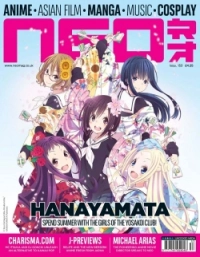
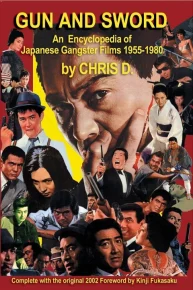
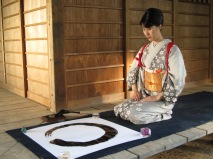
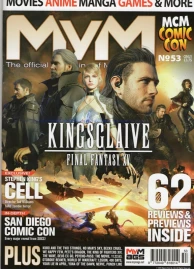


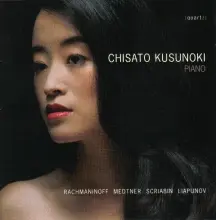

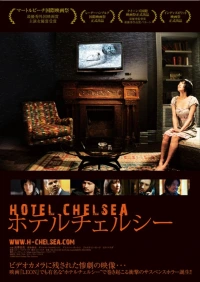

hello i wanted to be an actor cuz i always do but i wanted to make my family rich and make my lfie
LikeLike
No doubt that just the mention of the “Hotel Chelsea” creates much alure.So nice to see Hiro Masuda’s artistry wherever it’s displayed.
LikeLike
Thanks for your comment, Billy. “Hotel Chelsea” is a great film, I’m happy to do all I can to tell people about it. Hiro-san was a true gentleman throughout the interview!
LikeLike